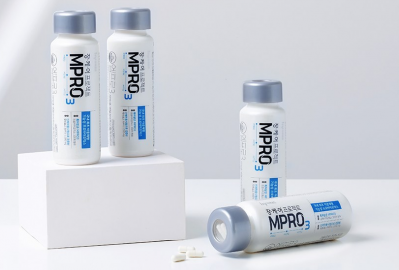Synbiotics against sepsis: Can treatment help prevent enteritis and pneumonia?

Critically ill patients tend to experience commensal microbiota deterioration, but the impact of probiotic or synbiotic therapy on microbiota and septic complications patients with sepsis has yet to be clearly determined.
Based on this, researchers at Osaka University, Osaka General Medical Centre and the Yakult Central Institute conducted a study to evaluate whether synbiotics had any effect on gut microbiota, or managed to reduce complications in mechanically ventilated patients with sepsis.
Synbiotics versus sepsis
They recruited 72 sepsis patients who were being mechanically ventilated in the ICU for an RCT whose primary outcome was infectious complications such as enteritis, VAP, and bacteraemia within four weeks of admission, and whose secondary outcomes included mortality within four weeks, faecal bacterial counts, and organic acid concentration.
Enteritis was defined as "the acute onset of continuous liquid stools for more than 12 hours".
Among the patients, 35 received synbiotics (Bifidobacterium breve strain Yakult, Lactobacillus casei strain Shirota, and galactooligosaccharides) within three days of admission, while the others did not.
The researchers subsequently observed that the incidence of enteritis was markedly lower in the group that had taken the synbiotics than in the other group (6.3% versus 27%).
The incidence of VAP was also significant lower among the patients who had been administered the synbiotics than those who had not (14.3% versus 48.6%), though the incidence of bacteraemia and mortality was not statistically significant between the two groups.
In the faecal bacteria analysis, the number of Bifidobacterium and Lactobacillus in the synbiotics group was significantly higher than in the other group, while in the faecal organic acid analysis, total organic acid concentration — particularly the amounts of acetate — were significantly higher in the synbiotics group in the first week.
The researchers acknowledged a source of potential bias in the study: the gut microbiomes tend to differ depending on factors such as geography, ethnicity and lifestyle.
As such, innate immunity through gut microbiota could also differ against pathogenic bacteria, and the modulation of gut microbiota by synbiotics might also be different.
There was also limited generalisability in the study. As the patients were collected via a tertiary centre after being transferred from the ICU to a limited area, they did not represent the national population. Furthermore, they were all Asian.
Because of this, the researchers recommended caution in applying the findings to a larger international population.
Recommendations for future studies
In addition, as this was a quantitative research study of the main subset of microbiota, and changes in other whole bacteria were not assessed, they wrote that the bacteria influenced by synbiotics in the gut microbiome could be a target for further studies.
The number of patients were also lower than initially expected, due to the small number of sepsis patients requiring mechanical ventilation with early enteral nutrition.
In conclusion, the researchers wrote: "Additional multi-centre studies are needed to solve this problem. Cost-effectiveness analysis using measures such as the number needed to treat could be needed for further research to apply synbiotics clinically.
"The administration of synbiotics increased the levels of beneficial bacteria and SCFAs (short-chain fatty acids). The beneficial alterations of gut microbiota and environment (via the administration of prophylactic synbiotics) may decrease the incidence of enteritis and VAP in patients with sepsis. Further research is needed to investigate the effects of synbiotic treatment."
Source: Critical Care
https://doi.org/10.1186/s13054-018-2167-x
"Synbiotics modulate gut microbiota and reduce enteritis and ventilator-associated pneumonia in patients with sepsis: a randomized controlled trial"
Authors: Kentaro Shimizu, et al.



















